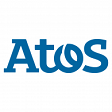Oak Ridge National Laboratory acquires Atos Quantum Learning Machine
 French firm Atos announced on November 14 a new contract with US-based Oak Ridge National Laboratory (ORNL) for a 30-Qubit Atos Quantum Learning Machine (QLM), the world’s highest-performing quantum simulator.
French firm Atos announced on November 14 a new contract with US-based Oak Ridge National Laboratory (ORNL) for a 30-Qubit Atos Quantum Learning Machine (QLM), the world’s highest-performing quantum simulator.
Designed by the Atos Quantum laboratory, the first major quantum industry program in Europe, the Atos QLM combines an ultra-compact machine with a universal programming language. The appliance enables researchers and engineers to develop and test today the quantum applications and algorithms of tomorrow.
As the Department of Energy’s largest multi-program science and energy laboratory, ORNL employs almost 5,000 people, including scientists and engineers in more than 100 disciplines. The Atos QLM-30, processing up to 30 quantum bits (Qubits) in-memory, installed at ORNL was operational within hours thanks to Atos’ fast-start process. Set up as a stand-alone appliance, the Atos QLM can run on premise ensuring confidentiality of clients’ research programs and data.
ORNL’s Quantum Computing Institute Director Dr. Travis Humble said, “At ORNL, we are preparing for the next-generation of high-performance computing by investigating unique technologies such as quantum computing. We are researching how quantum computing can provide new methods for advancing scientific applications important to the Department of Energy.
Our researchers focus on applications in the physical sciences, such as chemistry, materials science, and biology, as well as the applied and data sciences. Numerical simulation helps to guide development of these scientific applications and support understanding program correctness. The Atos Quantum Learning Machine provides a unique platform for testing new quantum programming ideas.”
Thierry Breton, CEO and chairman of Atos, added, “We are glad to accompany Oak Ridge National Laboratory from the outset in what is likely to be the next major technological evolution. Thanks to our Atos Quantum Learning Machine, designed by our quantum lab supported by an internationally renowned Scientific Council, researchers from the Department of Energy will benefit from a simulation environment which will enable them to develop quantum algorithms to prepare for the major accelerations to come.”
Source: Atos







